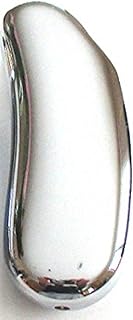Here's a breakdown of the key areas:
1. Materials:
* Plastic: The majority of the lighter is made from plastic, which is derived from petroleum. This contributes to the demand for fossil fuels and their associated emissions.
* Butane: The fuel used in lighters is butane, a hydrocarbon extracted from natural gas. Butane production and transportation also generate greenhouse gases.
* Metal: The lighter's flint, spring, and other small parts are made of metal, which requires mining and processing, causing environmental damage and generating waste.
2. Production:
* Manufacturing: The process of manufacturing lighters requires energy, often from fossil fuels, leading to carbon emissions.
* Waste Generation: The production process produces significant waste, including plastic scraps, metal scraps, and packaging materials.
3. Use and Disposal:
* Lighter Fluid: While butane is a relatively clean fuel, it can be harmful if released directly into the atmosphere.
* Disposal: Many lighters end up in landfills, where they can persist for centuries, posing a threat to wildlife and ecosystems.
* Ocean Pollution: Lighters often find their way into waterways and oceans, contributing to plastic pollution and harming marine life.
4. Alternatives:
* Refillable Lighters: These lighters reduce the need for single-use disposable lighters and lessen the environmental impact associated with their production.
* Sustainable Materials: Some manufacturers are exploring alternatives to plastic, such as bioplastics derived from renewable resources.
* Recycling: While not all components are easily recyclable, efforts are underway to improve recycling processes for lighters.
In Summary:
While BIC lighters are cheap and convenient, they are not environmentally friendly. Their plastic construction, reliance on fossil fuels, and potential for pollution contribute to a range of environmental problems. By choosing refillable lighters, opting for sustainable alternatives, and properly disposing of lighters, we can reduce the environmental impact of these seemingly harmless tools.


